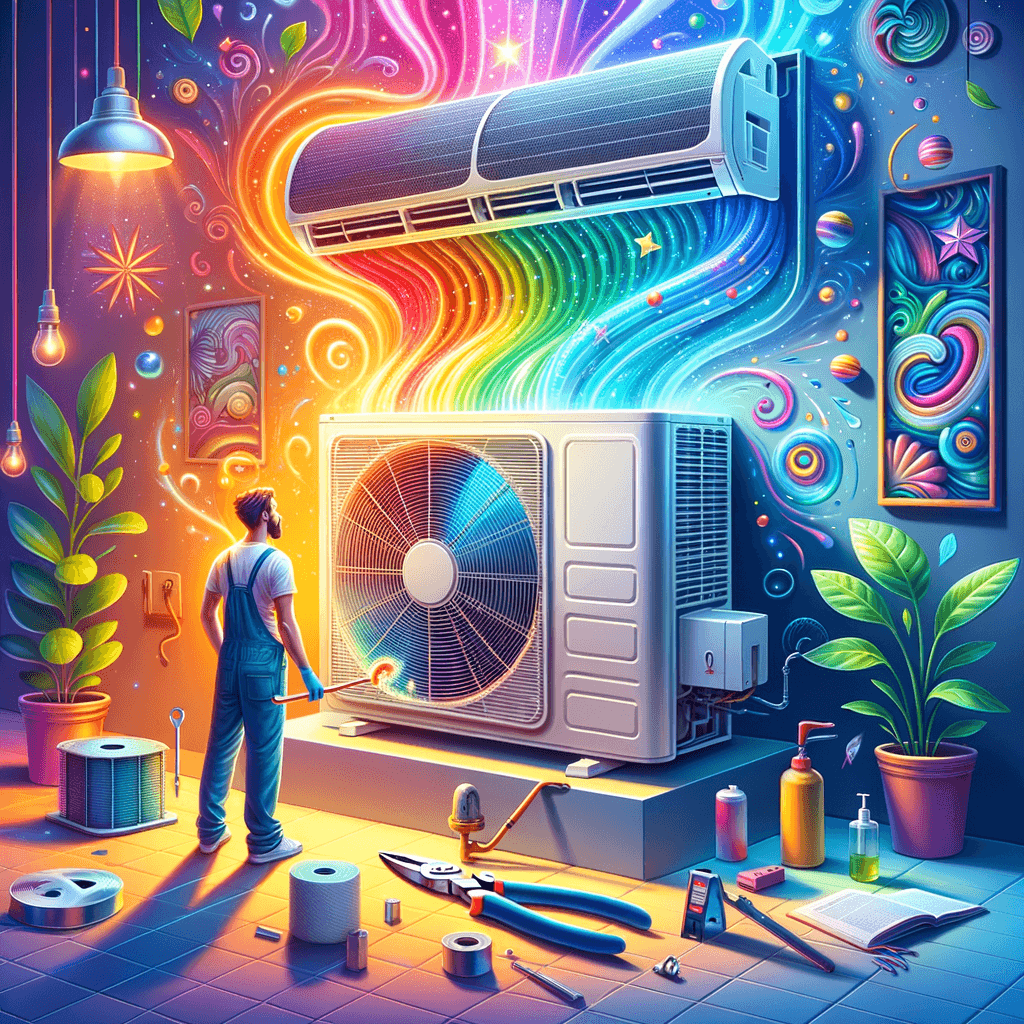
Mastering Air Conditioner Coil Maintenance: The Secret to Peak Cooling Efficiency
By Total Care Air Conditioning Sun Oct 12 20257 minutes

Why Coil Maintenance Is Critical for Air Conditioning Performance
Air conditioner coils, specifically the evaporator and condenser coils, are fundamental to your system’s cooling capacity. Neglecting coil maintenance leads to diminished efficiency, higher energy bills, and even premature system failure. Understanding the science behind coil operation helps homeowners and facility managers appreciate why routine care is non-negotiable.“A clean coil is the cornerstone of efficient air conditioning—overlook it, and your system will never reach its true potential.”
Types of Air Conditioner Coils and Their Functions
Every air conditioning system relies on two primary coil types: the evaporator coil, located inside the air handler, and the condenser coil, found in the outdoor unit. Each serves a unique purpose in the refrigeration cycle, directly impacting cooling performance and energy consumption.- Evaporator Coil: Absorbs heat from indoor air, enabling cool air circulation.
- Condenser Coil: Releases absorbed heat outdoors, completing the cooling cycle.
| Coil Type | Location | Primary Function |
| Evaporator | Indoor (Air Handler) | Absorbs indoor heat |
| Condenser | Outdoor Unit | Releases heat outdoors |
Signs Your AC Coils Need Immediate Attention
Dirty or malfunctioning coils often manifest through subtle and not-so-subtle symptoms. Recognizing these red flags early can prevent system breakdowns and costly repairs.- Noticeable decrease in cooling output despite thermostat settings.
- Unexplained spikes in energy bills.
- Frost or ice accumulation on indoor or outdoor coils.
- Unusual noises or hissing from the AC unit.
- Frequent cycling or system shutdowns.
Expert-Recommended Coil Cleaning and Maintenance Techniques
Routine coil maintenance is essential for optimal air conditioner operation. While some steps can be performed by diligent homeowners, advanced cleaning should be entrusted to certified HVAC professionals to avoid accidental damage or voided warranties.- Visual Inspection: Check coils for visible dirt, debris, or corrosion every season.
- Gentle Brushing: Use a soft-bristle brush to remove surface dust and prevent fin damage.
- Fin Straightening: Employ a fin comb to realign bent fins for proper airflow.
- Chemical Cleaning: Apply approved coil cleaners to dissolve stubborn grime (always follow manufacturer instructions).
- Professional Deep Cleaning: Schedule annual maintenance with an HVAC technician for thorough cleaning and performance checks.
Common Coil Maintenance Mistakes to Avoid
Missteps in coil care can undermine your efforts and even cause irreparable harm to your system. Avoid these frequent pitfalls to ensure lasting performance and efficiency.- Using high-pressure water, which can bend fins and reduce heat transfer.
- Neglecting to turn off power before cleaning, risking electrical shock.
- Skipping seasonal inspections, allowing debris buildup to worsen.
- Applying unapproved or corrosive cleaning agents that damage coil surfaces.
The Impact of Coil Maintenance on Efficiency and System Longevity
Well-maintained coils facilitate superior heat exchange, reducing compressor strain and extending the lifespan of your air conditioning system. Regular care also minimizes the risk of refrigerant leaks, frozen coils, and emergency breakdowns—saving you money and hassle in the long run.“Preventive maintenance is the most cost-effective insurance policy you can buy for your air conditioning system.”
| Maintenance Frequency | Expected Efficiency Gain | Potential Cost Savings |
| Quarterly | Up to 20% | $100–$300/year |
| Annually | 10–15% | $75–$200/year |
Frequently Asked Questions About Coil Maintenance
- How often should I clean my AC coils?—Inspect coils every season and clean at least once a year, or more frequently in dusty environments.
- Can I clean coils myself?—Basic cleaning is possible for DIYers, but professional service is recommended for deep cleaning and system checks.
- What happens if I skip coil maintenance?—Expect reduced efficiency, higher bills, potential refrigerant leaks, and eventual system failure.